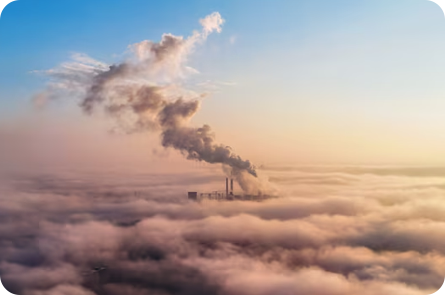Reclaiming Tomorrow’s Climate: One Small Step for Man- Simon Lee

- admin
- 05/05/2024
It makes sense to feel helpless and overburdened as the climate catastrophe gets worse. We may doubt the need for our efforts to improve the climate because of the many problems and the sluggish global political processes; nonetheless, every effort is valuable since it adds to the domino effect that leads to enormous change. People can make conscious decisions and form little, powerful habits that add to a collective effort that actually advances the fight against climate change.
Everything starts with one person:
Put a pebble into a peaceful pond. The waves rippled through every nook and cranny. That’s precisely how a person’s good deeds can counteract climate change. Every constructive adjustment we implement has a great deal of impact on other people and advances a larger cause.
This is an important first step towards energy efficiency:
Enhancing our normal energy-saving practices can readily overcome most of the issues. Easy adjustments like buying energy-efficient appliances, disconnecting electronics when not in use, and switching to LED lightbulbs can significantly lower our carbon footprint. If we implement these changes in every home, we can significantly transform our surroundings.
Cutting Back on Meat: A Sustainability First:
Choosing less meat is another effective personal step. The livestock industry greatly increases deforestation, water use, and greenhouse gas emissions. Making the commitment to “Meatless Mondays” or adopting a plant-based diet can help people lower their carbon footprint. This action benefits both the environment and an individual’s health.
Taking Up Renewable Energy: Making Use of the Sun’s Energy
Moving to wind or solar energy can cut greenhouse gas emissions dramatically. Homes may find installing solar panels to be a significant outlay of funds, but the long-term advantages are many. Many times, solar energy systems pay for themselves in five to ten years of energy savings, offering decades of free, pure energy. If panel installation is not feasible, choosing green energy plans from utility companies or encouraging renewable energy through municipal initiatives can still have a big impact.
Low Emissions in Sustainable Transportation:
In transportation, too, people can make a big difference. Either carpooling, bicycling, walking, or taking public transport reduces the number of cars on the road and the pollution they release. If you must drive, choosing an electric or fuel-efficient automobile will help to cut carbon emissions significantly. The Environmental Protection Agency (EPA) reports that the typical passenger car releases about 4.6 metric tons of carbon dioxide annually. Reducing the number of kilometers travelled or switching to a more environmentally friendly form of transportation can greatly lessen the effect.
Reducing Waste: The Three Rs (Reuse, Recycle, and Reduce)
Waste management is critical to combating climate change. The generation, movement, and elimination of waste all contribute significantly to greenhouse gas emissions. Followers of the Reduce, Reuse, and Recycle principles can reduce trash and related emissions. Reusable bags, bottles, and containers, composting organic waste, and recycling properly can all have a big environmental impact. According to the EPA, reusing one tons of paper will save 17 trees and reduce greenhouse gas emissions by one metric tons of carbon equivalent.
Conserving Water: A Priceless Resource.
Climate change is increasingly threatening a priceless resource, water. Water conservation not only preserves this priceless resource but also reduces the energy needed to pump, heat, and treat water. Just fixing leaks, shaving off a few minutes from your shower, and using water-saving fixtures may make a big difference. Technology and energy-saving practices can save up to 30% of water use, according to the Water Research Foundation.
Education and advocacy have an impact:
Apart from modifying their own way of life, people can make a bigger impact by supporting environmentally friendly legislation and spreading awareness of the need for action. Joining or supporting environmental groups, participating in neighborhood climate projects, and spreading awareness on social media can inspire people to take action. Collectively pressing governments and businesses to embrace more sustainable practices and policies can achieve greater systemic change.
I cast my vote for the environment:
Political involvement is another important step. Voting for climate action politicians and endorsing sustainable laws are two ways that people can shape the course of national and worldwide initiatives to stop climate change. Strengthening individual and community initiatives, grassroots movements, and local government acts often opens the door for more extensive legislative changes.
Conclusion: All steps matter.
Though climate change presents great challenges, it is important to keep in mind that every small activity contributes to a larger group effort. Small, ongoing actions can greatly benefit the environment. By decreasing waste, conserving water, embracing renewable energy, limiting meat consumption, and advocating for change, everyone can significantly contribute.
One step starts the road to a more sustainable future. If we take action today, we can save the planet for future generations as well as ourselves. Every step we take towards a healthier, more sustainable world advances our ability to combat climate change.
